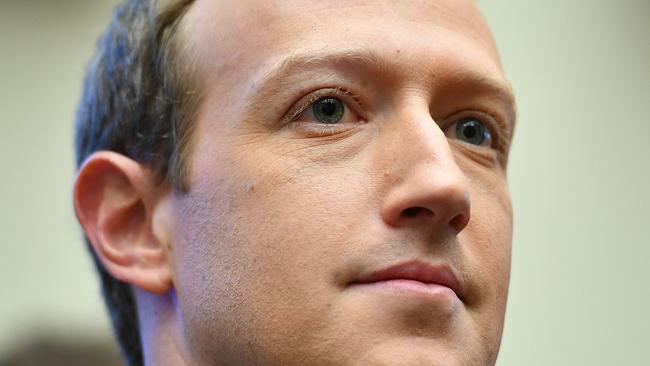Facebook launches paid subscription service
Mark Zuckerberg’s tech giant wants its users to buy a blue tick - but will anyone pay up?

Tech giant Meta announced it is switching on a paid verification service, giving users a verified badge, increased visibility on its platforms, prioritised customer support and more, for $20 per month.
The ‘Meta Verified’ service, which is similar to Twitter’s paid offering, will launch in Australia and New Zealand this week, and in other countries “soon”.
“This week we’re starting to roll out Meta Verified — a subscription service that lets you verify your account with a government ID, get a blue badge, get extra impersonation protection against accounts claiming to be you, and get direct access to customer support,” Meta chief executive Mark Zuckerberg said in a blog post.
“This new feature is about increasing authenticity and security across our services.”
Paid users will also get exclusive stickers for Stories and Reels and 100 free ‘stars’ per month – the digital currency used to tip creators on Facebook.
When the service launches in Australia and New Zealand this week, it’ll cost $19.99 on web and $24.99 per month on mobile, with the higher mobile charges likely due to the commission charged by Apple and Google on their app stores.
In order to sign up to become Meta Verified, you’ll need to meet minimum activity requirements, be at least 18 years of age or older, and submit a government ID that matches the name and photo you have on Facebook or Instagram.
“Long term, we want to build a subscription offering that’s valuable to everyone, including creators, businesses and our community at large,” Meta wrote in a blog post.
“As part of this vision, we are evolving the meaning of the verified badge so we can expand access to verification and more people can trust the accounts they interact with are authentic.”
The service is understood to be launching locally on Friday and will be largely targeting social media influencers, who generally need to be verified in order to build their followings.
Meanwhile rival social media outfit Twitter has begun charging its users for two-factor SMS verification, making the authentication method available only to customers of its paid Twitter Blue subscription service.
The social media giant, which under new owner Elon Musk is under heavy pressure to make money, will soon remove text message two-factor authentication from any account that isn‘t paying $13 per month for Twitter Blue.
Two-factor authentication, which represents an extra layer of security, lets users verify their accounts with a code sent via text message to prove their identity.
“While historically a popular form of 2FA, unfortunately we have seen phone-number based 2FA be used – and abused – by bad actors,” Twitter said in a blog post announcing the change.
“So starting today, we will no longer allow accounts to enrol in the text message/SMS method of 2FA unless they are Twitter Blue subscribers. The availability of text message 2FA for Twitter Blue may vary by country and carrier.
“Non-Twitter Blue subscribers that are already enrolled will have 30 days to disable this method and enrol in another. After 20 March 2023, we will no longer permit non-Twitter Blue subscribers to use text messages as a 2FA method. At that time, accounts with text message 2FA still enabled will have it disabled.”
In response to a tweet saying that Twitter was changing its policy “because Telcos Used Bot Accounts to Pump 2FA SMS,” and that the tech company was losing $US60m a year “on scam SMS“, chief executive Elon Musk responded ”Yup”.
Twitter about to give hackers a huge gift....
— John Scott-Railton (@jsrailton) February 18, 2023
... by *REMOVING text message authentication* for non paying accounts.
Yes, there are better forms of #2FA.
But this is blackmail.
Expect waves of takeovers as hackers run through password dumps. 1/ https://t.co/m1i50RsJjmpic.twitter.com/TXz8rrNZao
The move has been criticised by some cyber security experts who said while it will likely save Twitter some money, that benefit will be small compared to the trade-off of users dumping two-factor authentication.
What a load of garbage. This is not the kind of stuff that makes Twitter Blue worth paying for. If you can’t offer 2FA to every user then it’s clear you do not care about the security of your platform. pic.twitter.com/tcUetDZsmG
— Kristofor Lawson (@kristoforlawson) February 18, 2023


